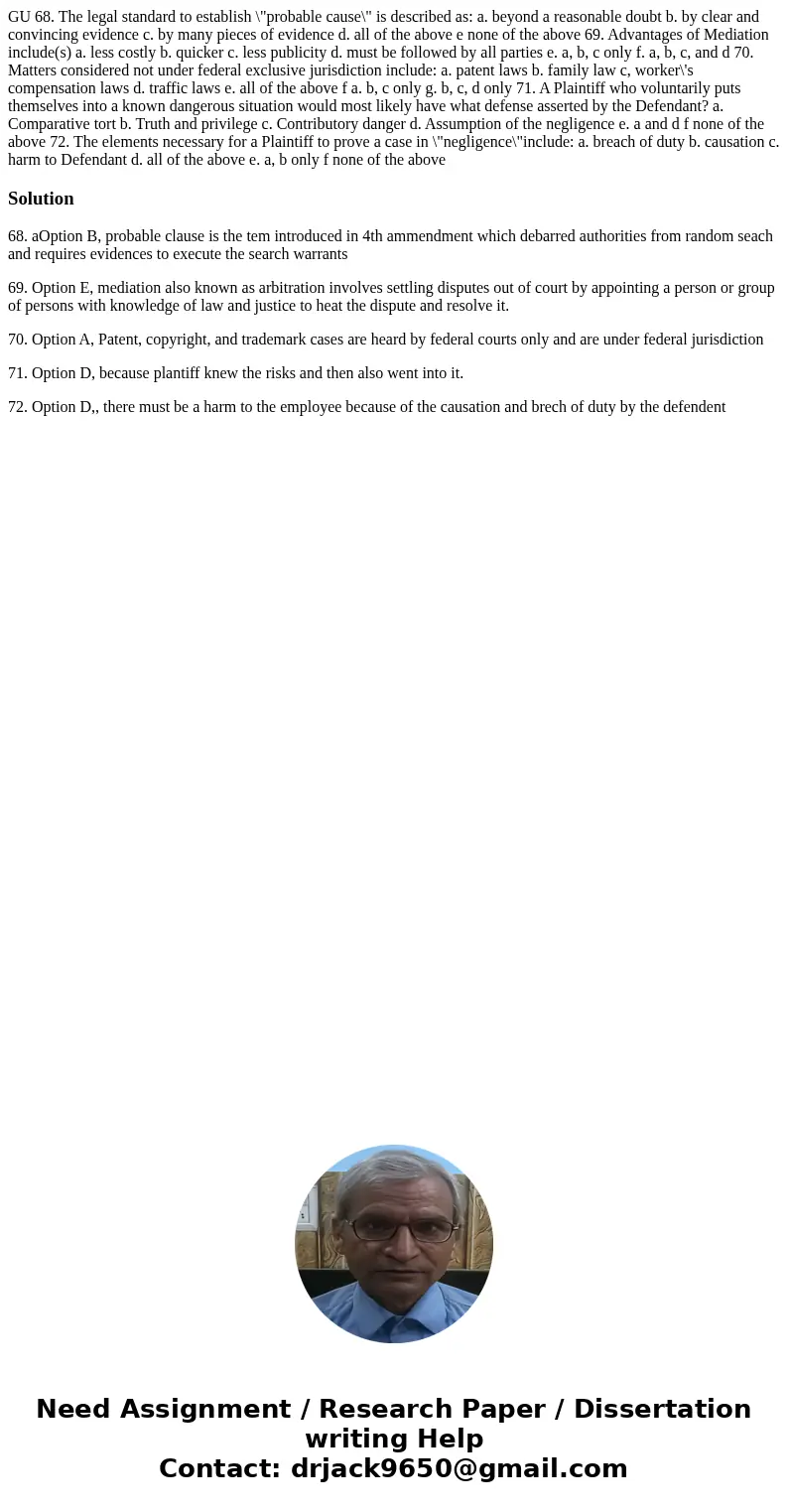GU 68 The legal standard to establish probable cause is desc
GU 68. The legal standard to establish \"probable cause\" is described as: a. beyond a reasonable doubt b. by clear and convincing evidence c. by many pieces of evidence d. all of the above e none of the above 69. Advantages of Mediation include(s) a. less costly b. quicker c. less publicity d. must be followed by all parties e. a, b, c only f. a, b, c, and d 70. Matters considered not under federal exclusive jurisdiction include: a. patent laws b. family law c, worker\'s compensation laws d. traffic laws e. all of the above f a. b, c only g. b, c, d only 71. A Plaintiff who voluntarily puts themselves into a known dangerous situation would most likely have what defense asserted by the Defendant? a. Comparative tort b. Truth and privilege c. Contributory danger d. Assumption of the negligence e. a and d f none of the above 72. The elements necessary for a Plaintiff to prove a case in \"negligence\"include: a. breach of duty b. causation c. harm to Defendant d. all of the above e. a, b only f none of the above 
Solution
68. aOption B, probable clause is the tem introduced in 4th ammendment which debarred authorities from random seach and requires evidences to execute the search warrants
69. Option E, mediation also known as arbitration involves settling disputes out of court by appointing a person or group of persons with knowledge of law and justice to heat the dispute and resolve it.
70. Option A, Patent, copyright, and trademark cases are heard by federal courts only and are under federal jurisdiction
71. Option D, because plantiff knew the risks and then also went into it.
72. Option D,, there must be a harm to the employee because of the causation and brech of duty by the defendent

 Homework Sourse
Homework Sourse